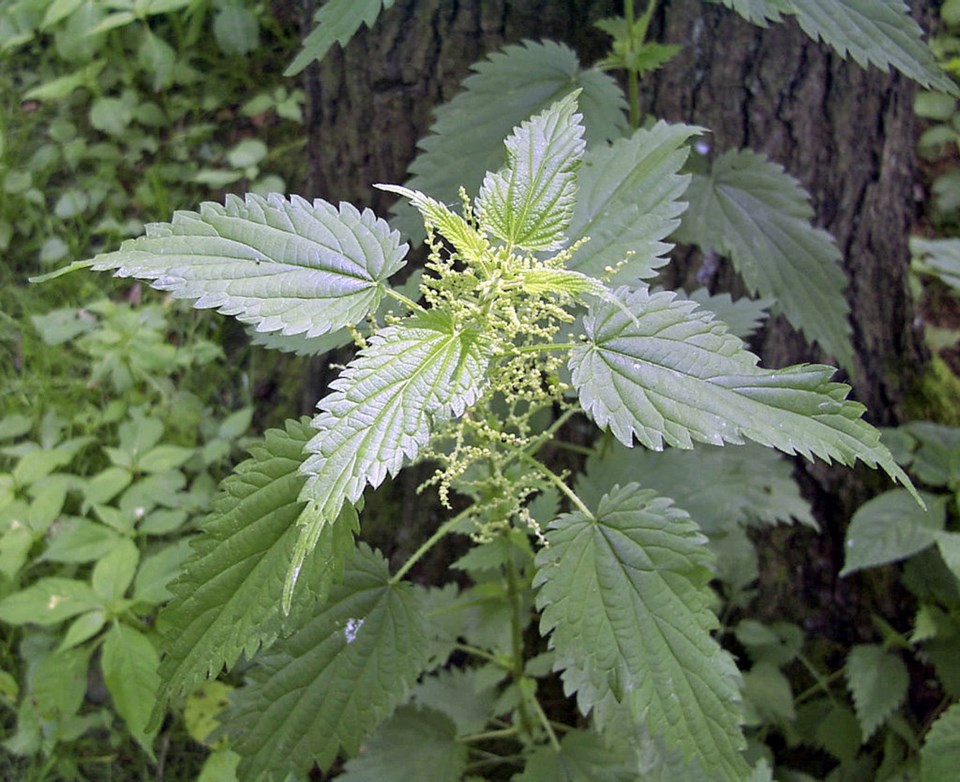Growing up in Northern B.C. with a bush cook for a father, Julian Napoleon learned how to hunt, fish and forage for wild greens, root vegetables, twigs and berries.
“My life revolves around foraging,” said Napoleon, manager of poultry operations and student researcher at UBC Farm. “It’s even a big part of fishing, to stop and pick up things before we go.”
Napoleon’s skills at urban foraging within the City of Vancouver were recently put to the test during an episode of a new TV series Moosemeat & Marmalade, which stars his dad Art Napoleon and Victoria-based, classically trained British chef Dan Hayes as co-hosts. In each episode of the 13-part documentary series, Napoleon and Hayes explore and prepare a signature dish from each of their cultures, while viewers learn about hunting, spirituality, foraging, gourmet food photography and tips on how to prepare everything from beaver to porcupine in venues as diverse as an aboriginal smokehouse to a Michelin-starred restaurant.
Julian Napoleon said growing up in Northern B.C. he was taught just how special hunting and then cooking and sharing family meals can be.
“My dad and I have had a friendly competition going on around cooking for quite a few years,” said Napoleon. “It’s great fun.”
And while Napoleon wasn’t willing to give away all of his secret locations for foraging in the city, he did share some tips on what to look for.
“There is some marginalized land in the city where I’m not really supposed to collect from,” he said laughing. “Some common ingredients I find are crab apples, feral lavender, watercress and stinging nettles. And blackberries of course.”
Napoleon has also discovered a little-known patch of land on the city’s East Side where he forages for hazelnuts, a key ingredient in his nettle pesto recipe.
“And there are so many beautiful herbs you can find just by walking around, I don’t know why anyone would buy them from the store where they’re imported,” said Napoleon. “I can always find rosemary, sage and thyme.”
Napoleon was happy to share his recipe with Courier readers for nettle pesto made largely from ingredients foraged from across the city. Napoleon noted, this recipe is partially intuitive and made to his personal taste. He encourages anyone making the pesto to season it to their own preference. Napoleon added if a new forager isn’t sure the plants they’re checking out are actually stinging nettles, they should lightly touch one with a finger to see if they sting. Otherwise, he advises using gloves for harvesting.
Nettle Pesto
Parboil four large handfuls of nettles (about the size of a bunch of kale) in boiling water for a minute or two to remove the stingers before plunging it into a bowl of ice water to stop the cooking.
Dry the nettles really well. (Napoleon noted this step is extremely important.)
Place the dried nettles in a blender and add one cup of good quality olive oil.
Add two to three fresh cloves of garlic — or to taste. (Napoleon recommends the garlic grown at UBC Farm.)
Add ¼ cup of hazelnuts in lieu of the pine nuts traditionally used.
Blend in four tablespoons of Parmigiano Reggiano cheese.
Add salt and freshly cracked pepper to taste and blend.



